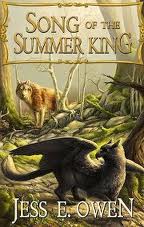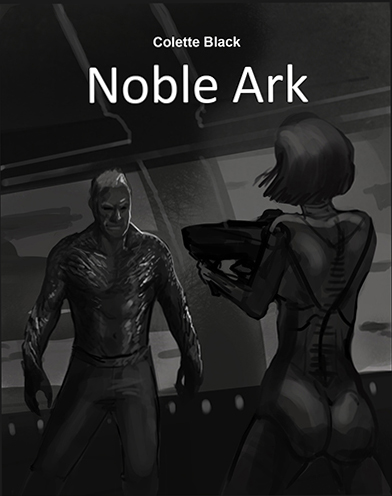 Guest Post by Jess Owen
Guest Post by Jess Owen
If you haven’t heard of Kickstarter yet, as soon as you finish this article you’re going to be inundated with emails from old friends, family members and distant colleagues asking you to support their Kickstarter campaign. Just wait.
So what is it? A streamlined, user-friendly website to facilitate an idea called crowd funding. The folks at Kickstarter believe that, “…a good idea, communicated well, can spread fast and wide,”* . . . and gain support. Monetary support. What began as a grass roots fund raising method for indie music bands has exploded into a worldwide phenomenon that gives individuals the financial power to see any creative project through to completion, and gain a tribe of new friends and fans in the process.
Artists, musicians, authors, inventors, restaurateurs, film makers, you name it, Kickstarter supports it.
All you need is one tangible project, a timeline, a bag of goodies to hand out at the end, and you are ready to dive in. Don’t forget a “can-do attitude.”
I used Kickstarter to fund the hardback printing of my debut novel, Song of the Summer King. Rather than turn to POD, I decided to research printers in order to gain a wide view of all available options to the modern self-publisher. While I waffled on how best to go about paying for and distributing my book, a friend mentioned Kickstarter.
This is how it works: an individual creates a project. This must be a tangible goal with an end date and a product (like an album, a book, an art show; no “fund my life” projects). For me, it was printing the hardback book. A traditionally published author might want to create a whole bunch of snazzy schwag for her launch event, but not have enough funds. Kickstarter can do that too. Once you create your project, you figure how much money you need, set the financial goal, give yourself a time limit within the maximum of 6o days, and launch! (For more detailed information on the mechanics, read through the Kickstarter School on their web page.)
I raised $9,000 in thirty days, with an initial goal of $6,000. Here’s how I did it.
I found my audience. It is critical that you know where to find the people who will actually want to read your book. If this is starting to sound like every other writing article on marketing, it should. If you don’t understand marketing yet, it will be difficult for you to succeed with Kickstarter or any other fund raising program. Kickstarter is basically a way for readers to pre-order your book, plus fun and prizes. So know where your peeps are, and how to get their attention. I write fantasy, and for years have also been a minor member of the fantasy art community. Still, this was a place to start. I began to draw a lot more gryfons and wolves when I knew I was going to self-publish, and with that work, I started to attract fans, fellow artists and readers with those interests.
In other words, I built a platform. Start doing that now, no matter what stage you’re in.
Next, involve your family and friends. My family and friends were my biggest supporters. I hope yours are too. If they aren’t, go to your chosen family, your good friends, your writing buddies, your neighbors, church-whoever supports you. Don’t be ashamed that you’re asking for money, either. Be proud! Be excited! You have created something, or you’re certainly about to, and the people who love you will be excited for you.
Have a plan. I had a plan to give interest a boost at the beginning of each week of my campaign. The first week was family and friends. The second week, I had artists post pieces of special promotional works centered around my book. Yes, I had to pay for them, but I was supporting other artists. Also, their work was better than a simple advertisement, because their 10,000 interested fans were suddenly looking at beautiful pieces of art about my book, with links back to Kickstarter. The next week I was in my hometown newspapers, and after that, I appealed to bloggers. It doesn’t matter what your plan involves, as long as it targets your audience base.
As far as figuring out rewards and timeline, I researched other projects. Art featured heavily in my rewards, because I’m close to the fantasy art community. I picked a cover artist who appeals to my target audience, and offered prints of her work at several reward tiers. I was also surprised that my own artwork was a relatively popular reward option.
Choose rewards that are pertinent to your story. Got a cool sci-fi novel? Get nifty badges or buttons or figure out a way to do super slick holographic bookmarks. Think of what you’d want in a grab bag from your favorite author, and offer that stuff as rewards. Study what other publishing projects are offering. You don’t have to reinvent the wheel, just figure out what’s already working.
Remember to factor the cost of rewards into your funding goal. This is a mistake I made, and I’ll admit it without shame. (The point is I’m wiser now . . .) Factor in rewards, shipping, and the percentage that Kickstarter takes out for processing credit cards. I asked for $6,000, raised $9,000, and walked away with $8,110 because of the processing fees and people whose pledges didn’t go through. I had just enough to cover my project.
Aside from all the technical information, what I will say is what I think Kickstarter, and websites like it, mean for authors-particularly, self-published authors. Many aspiring authors have sometimes said or thought, “If I could just get my work out to the people, they would love it.” Well now’s the time to saddle up. You can use Kickstarter to raise money for that professional editor, cover artist, layout and lettering designer, and any other initial costs associated with self-publishing.
We are in the Information Age. Anyone who understands how to move information and get it to the masses will succeed. Writers who can track down and target their fan base will sell books. Now, that fan base can invest even more love and support by actually helping you publish your work. The psychological power of active community support is going to be huge in the near future. Your fans are not just fans anymore. They’re investors. They’re partners. They’re going to be excited for more than just your next book, they’re going to be excited for you. And that is priceless.
Kickstarter and other websites that facilitate crowd funding are about more than just money. They’re about community. They help you find your fans, your friends, your colleagues. They help you build your tribe. The people who pledge to your project don’t just want to buy your book. They want to help worthy dreams come true and watch people succeed. And they want to be a part of it. Even if you’re an independent author, there’s no reason you have to do it alone.
To me, that’s pretty darn exciting.
Guest Writer Bio: Jess has been creating works of fantasy art and fiction for over a decade, and founded her own publishing company, Five Elements Press, to publish her own works and someday, that of others. She’s a proud member of the Society of Children’s Book Writers and Illustrators and the Authors of the Flathead. She lives with her husband in the mountains of northwest Montana, which offer daily inspiration for creating worlds of wise, wild creatures, magic, and adventure. Jess can be contacted directly through her website,
www.jessowen.com, or the SOTSK facebook fan page,
www.facebook.com/songofthesummerking


